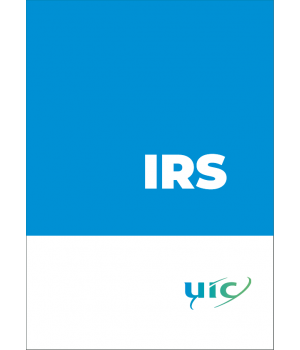
Safety in railway tunnels
This IRS is a compendium of possible measures to increase safety in railway tunnels, reflecting the best practices of European railways. All measures are described in detail, considered in terms of their cost-effectiveness and accompanied by recommendations.
The IRS covers:
- new and existing railway tunnels over 1 km in length,
- mixed passenger/freight traffic and normal operating conditions (up to 200 trains/day),
- measures in the fields of infrastructure, rolling stock and operations.
It does not cover underground platforms and subways in urban areas.
The main risks that are considered in tunnels are fire, collision and derailment. Because of their potentially catastrophic consequences, fires in passenger trains are seen as the major risk and the set of measures proposed focuses on this type of accident.
Safety in tunnels is the result of an optimum combination of infrastructure, rolling stock and operations measures. A general principle shared by all railways can be summarised by the following:
1. Prevent accidents
2. Mitigate the impact of accidents
3. Facilitate self-rescue
4. Facilitate rescue.
The order in which these actions are listed reflects their decreasing effectiveness, especially in the event of fire.
To the extent that safety is regulated at national level, it shall be defined by national authorities. Interoperability requirements must also be considered. The recommendations of the leaflet shall apply subsidiarily to the above-mentioned rules, authorities and requirements.
Fiche technique
- Langage
- Anglais
- Format
- Téléchargeable
- Edition
- Ed. no.1
- Date d'édition
- 01/06/2021
- Date de publication
- 01/06/2021
- Nombre de pages
- 82
- Thème
- Infrastructure Safety
- sku
- 70779-9/E/1-PDF
- Reference
- 70779-9
 Préférences sur les cookies
Préférences sur les cookies

